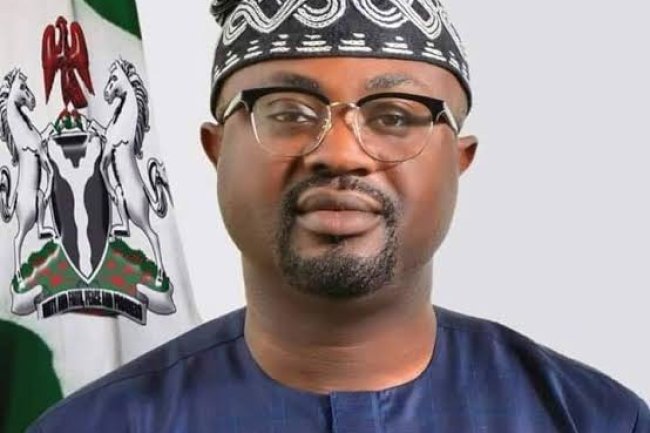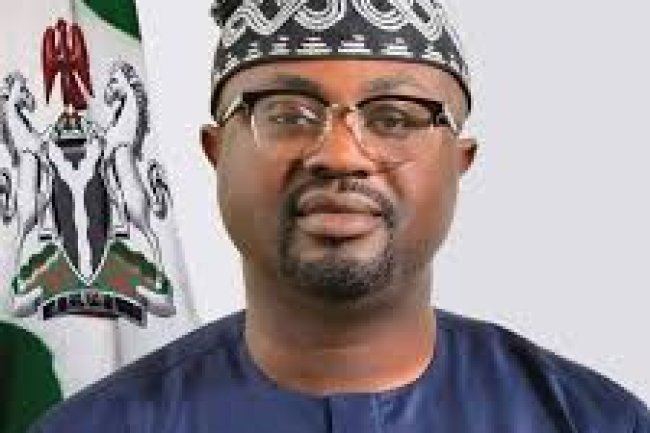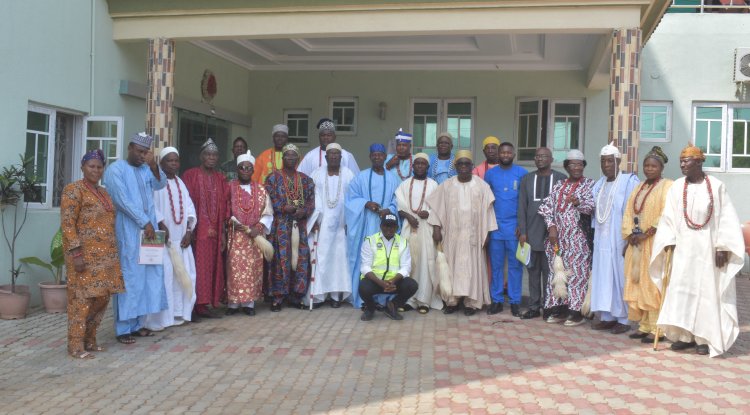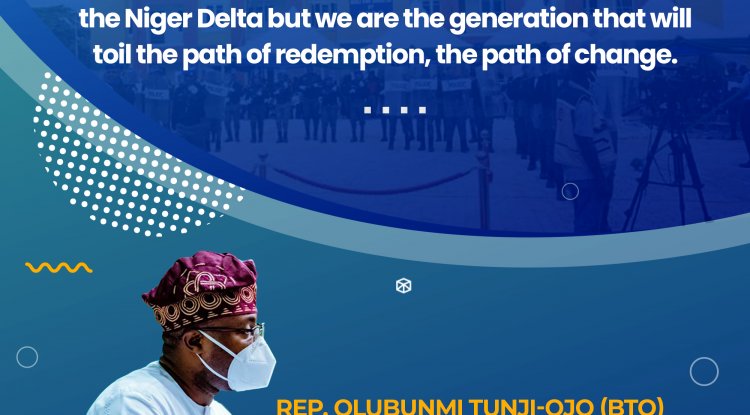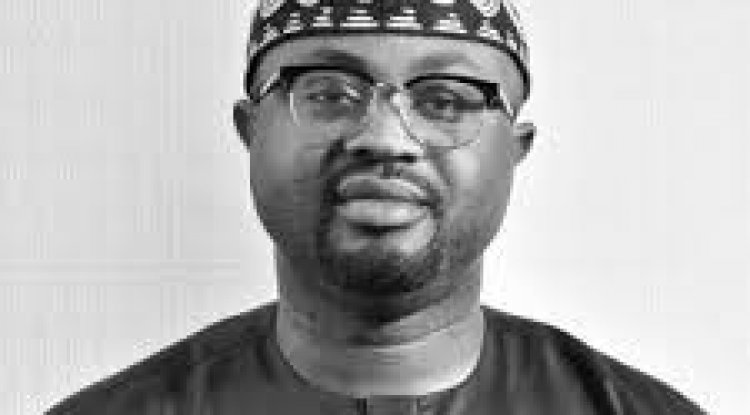Gbajabiamila and Parliamentary Diplomacy

If there's one problem which has in the last few decades since independence militated against the deep entrenchment of democratic institutions in Nigeria, against the rightful coordination of the nation's path for sustainable growth across its various sectors, it's the dearth of true, progressive, and purposeful leadership.
While the nation's socio-political terrain has failed to produce many leaders who, in the true sense, can be defined as round pegs in round holes, it's not entirely a drab situation as the nation can boast of having seen the emergence and beautiful manifestation of certain individuals who have proven themselves to be thoroughbred public officers with the credibility and trajectory that rank them above others in the course of our national discourse.
The current Speaker of the House of Representatives, Femi Gbajabiamila, deserves an honorable mention among those who can be regarded as the finest breeds of public officers that the country has ever produced since independence.
He is a gentleman whose personality exudes charisma, dignity, and honor.
He is a man infused with sheer organizational ability, administrative prowess, uncommon trouble-shooting acumen, masterful logic, foresight, and, above all, arguably the most colorful speaker in the post-Awolowo era.
Based on his trajectory, it can be objectively agreed that he is an outstanding Yoruba leader who has profoundly shaped and dictated the pendulum of Nigerian politics from the hallowed corner of the Green Chamber.
Apart from these numerous aforementioned qualities which endear many to him, Gbajabiamila has successfully used political diplomacy to build bridges, solidifying them as he continues to advocate the building of strong and functional institutions which would, in the long run, sustain the commonwealth of the people.
In the last few years, he has created a niche for himself as a peacemaker, a recounciliator, and a leader across the Niger. On numerous occasions, his timely interventions and diplomatic efforts have made the difference in helping sustain relationships between important sectors, individuals, and the nation itself.
Recently, it took his intervention to resolve the eight-month strike embarked on by the Academic Staff Union of Universities in Nigeria. Even after efforts by Nigeria's Minister of Education, Adamu Adamu, and Federal Minister of Labour and Employment, Chris Ngige, among others, had failed, Gbajabiamila took it upon himself to provide the missing piece that eventually solved the puzzle.
His much appreciated efforts were ones which drew the praise of the National executives of the National Association of Nigerian Students (NANS) South West Zone, who via a press statement wrote, "The virtuous interference of these scrupulous Nigerians depicted a great beauty of democratic leadership and will not go unacknowledged by Nigerian students. Nigerian students with a high sense of humility treasure your involvement and contribution. "
The Nigeria Labour Congress was not left out in extolling the patriotic efforts of Gbajabiamila in resolving the strike. The NLC president, Ayuba Waba, reportedly wrote, " ... globally, that perspective has changed. The relationship is now a symbiosis, and that requires mutual respect from both the employers and the employees."
"I think this is what Gbajabiamila was playing out. I must commend him for his significant contributions and important roles so that in the end it will be a win-win thing.
"I commend the wisdom of the Speaker. There is no use in using cohesion or force in solving the problem but through the provision of dialogue that will comfort everybody," he said.
Nigerians will not also forget in a hurry the efforts of Gbajabiamila in resolving the Nigeria-Ghana diplomatic row.
Given the closeness of both countries and their shared history, it would be a pathetic situation if both nations were not diplomatically aligned with one another. The consequences would not only affect the economies of both countries, whose people enjoy working together, but would also have a negative impact on other West African countries that look up to both.
Gbajabiamila, in his wisdom, led delegates from Nigeria to Ghana, where he met his Ghanaian counterpart, Mike Oquaye.
The intervention of Gbajabiamila was able to resolve the then growing diplomatic spat between both nations over some actions taken by the Ghanaian government against Nigerian traders and the demolition of part of the Nigerian high commission in Ghana.
It should also be recalled that he played a similar role in the crisis with China in the year 2020.
During this period, evidence suggested the maltreatment of Nigerians in China, and it was to the relief of Nigerians that they had a figure who they could count on not only to meditate on their behalf but also fight for their cause.
Gbajabiamila met with Zhou Pingjian, who is the Chinese Ambassador to Nigeria. He told Zhou that Chinese officials should stop mistreating Nigerians in China.
Today, China is a nation known for its economic wits and it would have been counterproductive for Nigeria as a nation to have mismanaged the situation. The nation can boast of numerous infrastructures which were facilitated with loans obtained from China. Gbajabiamila deserves credit for keeping the relationship between the two countries on a diplomatic level when it was very important and difficult to do so.
Not less than 100 Nigerians have been reportedly killed in various xenophobic attacks in South Africa in the past years. It’s a barbaric act condemned by all and more sensitive in dealing with. Consistently, Gbajabiamila has thrown himself into every interaction around Nigeria’s international affairs. Even as the then majority leader of the House of Representatives in March 2017, he led a delegation of members of the House on a protest visit to South Africa, where he stated that “retaliation is not the first step to diplomacy.”
This position he reinforced when yet another set of Nigerians were murdered in 2019 where he — now as Speaker of the House— cut short his trip to Tanzania for the 5th Commonwealth Parliamentary Association meeting and also forced the House to abruptly end its recess to address the ugly incidents that saw Nigerians lose their lives and their properties looted. Subsequently, South Africa apologized through its envoy, Jeff Radebe. This was about the last time Nigerians suffered such attack.
Back at home, the diplomatic efforts of Femi Gbajabiamila were brought to the fore of our national discourse as he was able to excellently avert a crisis which could have turned into a national embarrassment.
The aviation sector crisis had caused significant inconvenience for many, with flight ticket prices skyrocketing and many airlines ceasing operations.
Even though crises are yet to be fully resolved, the speaker has continued to bridge the gap between the major stakeholders in the sector, facilitating the constructive process to reach an agreeable consensus.
A few days ago, it was reported that he had scheduled a meeting with the Central Bank of Nigeria Governor, Godwin Emefiele, and the Minister of Finance, Budget and National Planning, Zainab Ahmed, over the crisis in the aviation sector.
On numerous occasions, Gbajabiamila has proven his worth as a true elderstateman. Based on his activities, it's quite evident where his priorities lie.
Upon inauguration as Speaker, Gbajabiamila stressed the need to build a worthy Nigeria. No wonder the focus of the current National Assembly is "Nation Building, Joint Task". He promised to shake tables where necessary and in the interest of Nigeria and its citizens. He has not shied away from this ever since.
It can only take a man with an understanding of the people he represents to know when things are not going well.
It would be recalled that in the heat of the lockdown imposed by states and the federal government in response to COVID-19, the Gbajabiamila House of Representatives initiated a bill that would allow Nigerians to enjoy free electricity supply for a particular period.
The lockdown, as it was anticipated, had grounded the individual economy and the least the government could do at that stage was to put some forms of alleviation in place, one of which would have been to take off the payment of electricity bills from the people throughout the period of the stay-at-home.
"It is one thing that will touch every household. As I said earlier, when we engaged, I discussed with the electricity distribution companies (DisCos) to propose what it would require—if the government could give them—for us to allow for two months of free electricity for Nigerians.
The proposed Bill, which will be the second stimulus bill by the Green Chamber, is to be considered immediately the House reconvenes from its ongoing break, declared due to the pandemic, "Gbajabiamila said about the development.
While there are numerous instances where Gbajabiamila has risen to the occasion to provide much-needed diplomatic intervention, it is critical that we recognize the honorable contributions of a man who has risen against the odds to redefine patriotism, one who has exhibited exemplary leadership in a society that yearns for more purposeful leadership.
It's the hope of many that the coming generation of change-makers and leaders will learn from the enigma, the icon, and the diplomatic maestro named Femi Gbajabiamila.
What's Your Reaction?








